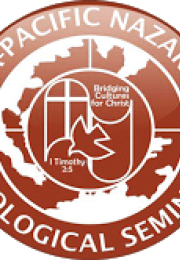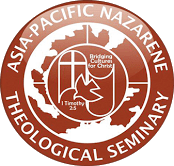- Resource Types
- Resource Languages
- Institutional Repository
 Visit the home page
Visit the home page
About Site Language
WHDL is viewable in multiple languages. Use the pull-down menu to select a language to view the site.
I changed my language, but I’m still seeing resources in the other languages?
If a resource or text has not been translated into your selected language, it will appear in the initially added language. We are always looking for help translating these resources. If you can help, contact us!
WHDL - 00021589


This research investigates alcohol consumption and misuse among Christian youth in the Kalay Area of Myanmar, focusing on causes, impacts, and solutions, particularly referencing spiritual concerns. Christian youth frequently initiate alcohol consumption at a young age, often excessively, resulting in considerable negative impacts on the family, church, and community. They grow more distant from the church and decrease in their spirituality. The researcher utilized the qualitative research methodology, which involved performing semi-structured interviews. Despite the well documented harms of alcohol misuse, the research uncovered a significant theme labeled “seeking peace” as a primary factor. Christian youth in Kalay experience stress due to poverty, little schooling, and a deficiency of Biblical knowledge relating to their behavior. Consequently, youth frequently resort to alcohol misuse as a means of managing with their stress-related challenges. This research seeks to assist Christian youth in effectively recovering from abuse by addressing their spiritual needs. This study defines alcohol and examines its effects, including physical, psychological, and emotional impacts. Alcohol consumption also affects families, churches, communities, and spirituality, leading to various problems. The study reviews different perspectives on alcohol use in Scripture, highlighting both positive and negative aspects, as well as theological prohibitions. From a Christian viewpoint, the body is considered the temple of God, and believers are called to live holy lives. The guidance of the Holy Spirit and the use of the Bible are emphasized for meeting spiritual needs, especially among young people. The research focuses on recovery programs for youth abusing alcohol, exploring the roles of recovery programs, families, churches, and community leaders. Spiritual counseling is identified as a valuable support for recovery, and the study introduces the Grace Intervention Recovery Program as an effective therapy. Semi-structured interviews were conducted with youth abusing alcohol and with leaders involved in their recovery, including those providing training, camps, and rehabilitation care. Due to political instability, data from local authorities could not be obtained; instead, the experiences of leaders and abusers were used as primary sources. Additional information was gathered from books, journals, and online articles. The study finds that the main reason youth consume, and abuse alcohol is to seek happiness and reduce stress, often influenced by their peers. The absence of a strong national alcohol control strategy is one of the reasons for alcohol abuse. The researcher attempts to address alcohol abuse by applying the twelve-step program, which involves acknowledging pain and reinforcing positive experiences. It promotes community and church-based recovery programs as possible ways to treat substance misuse. The author has a desire to apply the research practically and encourages further study not only in the Kalay area but also in other regions. If the research can incorporate quantitative methods and counseling approaches, it will also be beneficial for the ministry in addressing abuse recovery.
6 Resources
Capstone Projects are generally designed to encourage students to think critically, solve challenging problems, and develop skills such as oral communication, public speaking, research skills, media literacy, teamwork, planning, self-sufficiency, or goal setting—i.e., skills that will help prepare them for their careers. In most cases, the projects are also interdisciplinary, in the sense that they require students to apply skills or investigate issues across many different subject areas or domains of knowledge. Capstone projects also tend to encourage students to connect their projects to community issues or problems, and to integrate outside-of-school learning experiences, including activities such as interviews, scientific observations, or internships.
2025
2023
2019
2023
2024
2022
2025
2016
2023
2024
2022
2025
2022
2021
2016
2025
2018
2018
2023
2020